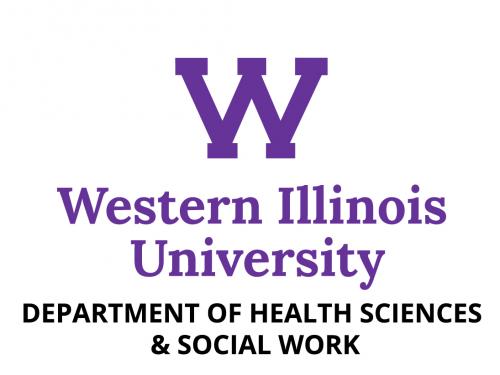University News
WIU Public Health Telebrigades Program Assists Honduran Community
May 20, 2021
MACOMB, IL – Graduate students at Western Illinois University have been given the unique opportunity to reach out to a community in Honduras, even in the age of COVID-19.
Graduate students in WIU's Health Sciences program have been working alongside a Honduran community as public health consultants. The program, known as Public Health Telebrigades, a part of Global Brigades, utilizes programs like Zoom to allow students at Western the ability to impact others internationally. Through an entirely virtual environment, students offer their expertise on a wide variety of subjects having to do with public health and sanitation in the age of an international pandemic.
Members of the Public Health Telebrigade program, who worked alongside WIU's students, had many positive things to say about those who participated.
"This particular brigade, and the final presentation that the group made, is helping me to visualize the solutions to the problems of the communities from a cognitive, formative, attitudinal point of view, and not from the structural point of view as usually seen by BSC volunteers (Basic Sanitation Committee) in the communities," said Luis Bonilla, one of the team members working with the students at Western. "In other words, this telebrigade group broadened our perspective of how to face situations and difficulties in the communities. I hope that groups of students and professionals of this scope will continue to join our telebrigades ... To continue expanding our knowledge and experiences."
Another telebrigade member from Honduras, working with students at Western, José Castejón, said he was impressed with the presentation made by WIU students.
"The slides were well prepared, and they included enough visual information," he said. "They also managed the time properly. Of course, the most important part was the content delivered. I appreciate the fact that your students don't just see burning trash as a health issue, but also as an environmental hazard. I personally paid special attention to the recommendations. I also liked the fact that your students included the productive part of the economy, by discussing the fact that the farmers can be trained in the future about technology and better production."
The group of WIU students working on the virtual program include Health Sciences graduate students Jeremy Haas, of LeClaire, IA; Schuyler Wardlow, of Milan, IL; Brittany Good, of Clinton, IA; Olugbenga Oyedeji, of Nigeria; Argelia Reza, Dalia Reza and Kenia Reza, all of Peoria, IL; and Quentin Wilson, of Macomb.
"Brittany did a great job doing research on public health surveillance in Honduras, which is a topic that was touched for the first time in any public health telebrigade," said Castejón. "I loved also how Taylor developed the gender roles topic (this is a huge cultural challenge) and how Jeremy put a lot of effort on presenting the weather alert system alternatives to be prepared in case of floods. Of course, the rest of the topics are important, and they were properly delivered, but I consider that the ones I mention above came to enrich our program and broaden our scope and perspective as local staff."
Castejón said so much has been learned through the program, and he believes it will have an effect on the mid- and long-term health of the community
"I am sure the volunteers from the community have caught the message and the idea that they own their future and they can change it for their well-being. It may seem that rural communities are meant to struggle all the time and that the problems adults face today have no solution and the children will face them too. But that is not true, and that way of thinking is what we are trying to fight against."
When asked how the program has changed since COVID-19 has affected the WIU Community, Professor Maureen Bezold said the in-person, face-to-face work previously done in Honduras was out of the question because of the pandemic.
"I found out about the Telebrigades, and it really clicked for us," she said. "It made it much cheaper for both parties to get involved due to the lack of travel cost at first, but I realized it also really made it much more accessible for students who may have had a hesitation to travel, or simply couldn't have afforded it previously. It really increases the chance that we can continue this opportunity well into the future and we're thankful to have had the Telebrigades program… Thinking about the future, we're excited to return to Honduras, but a hybrid program is what we're probably going to go with. We'd be looking at that hands-on in-person experience for some and the Telebrigade opportunity for others who might not be able to afford the travel costs."
For more information about the Health Sciences graduate program in Public Health, visit bit.ly/3dqqJmi.
Posted By: Ethan Hager (wiunews@wiu.edu)
Office of University Communications & Marketing


Connect with us: